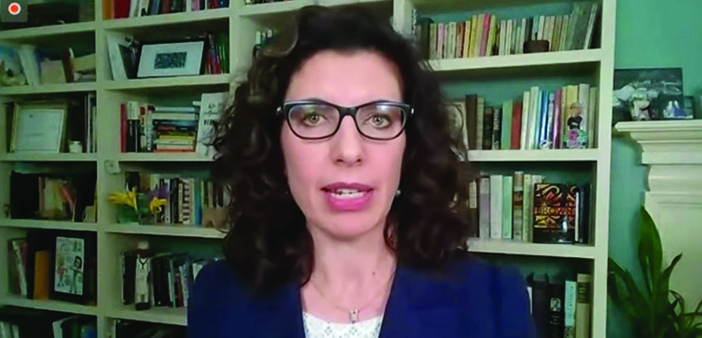Emergency physician urges Congress to support health care workers and systems.
Health care staffing and supply chain shortages, unreliable data and rampant misinformation are among the hurdles the country’s health care systems continue to confront as providers work to effectively battle COVID-19 and other potential future pandemics.
That’s what Megan Ranney RES’08 F’10 MPH’10, MD, a professor of emergency medicine and academic dean at the Brown School of Public Health—told members of Congress in a March 2 hearing.
“All of this can be fixed,” Ranney testified. “As Americans, we have a long history of transforming a public health crisis into opportunity.”
Ranney was among a panel of experts whom lawmakers tapped into for insights on the struggles that health care workers and health care systems have faced since COVID-19 spread across the nation in 2020. Convened by the US House of Representatives Committee on Energy and Commerce’s Subcommittee on Oversight and Investigations, the hearing was titled “Lessons from the Frontline: COVID-19’s Impact on American Health Care.”
In her opening remarks, Ranney, who is a practicing emergency physician, detailed the mental and physical impacts suffered by health care providers after working at a feverish pace to treat patients during a pandemic now headed into its third year. Those ranks of health care workers suffered a heavy toll, she said.
“The most significant reason for staffing shortages: the mental and emotional effect of repeated COVID-19 surges on our health care providers who keep showing up, but our work is getting tougher, and there are no reinforcements in sight,” she told lawmakers.




